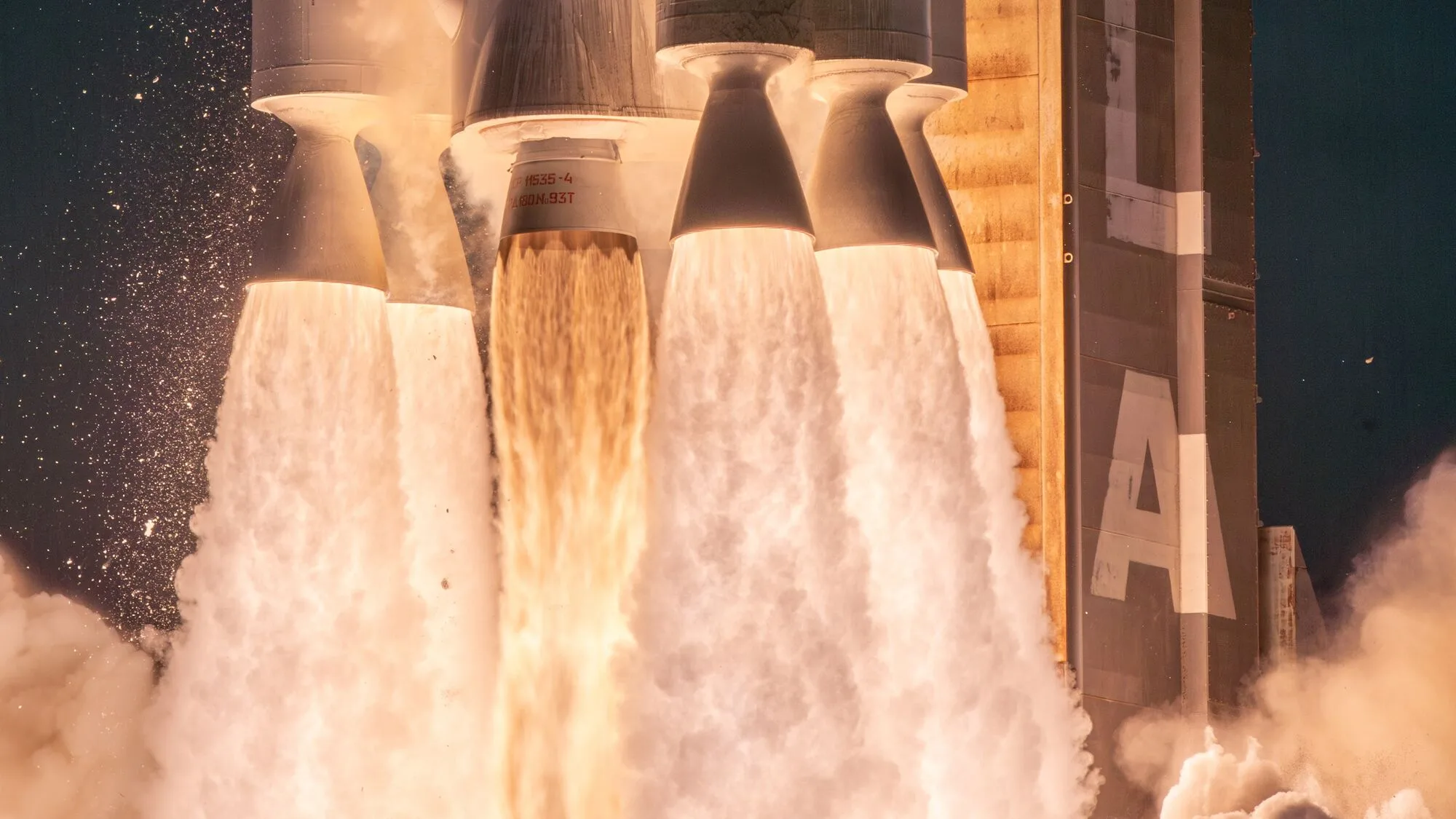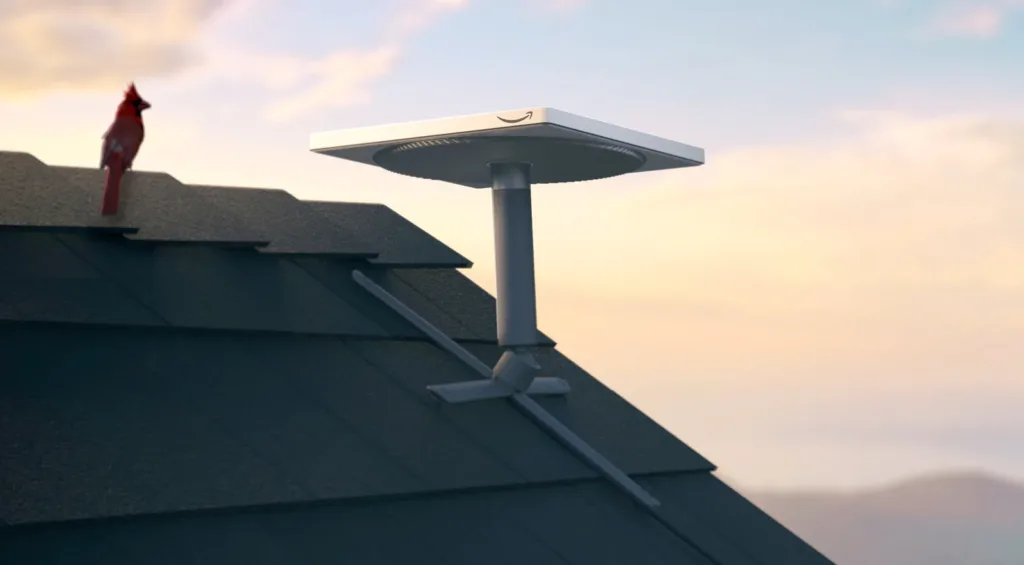What is the status of Amazon Leo? When will it be ready for customers looking for an alternative to Starlink?
What To Know About the Amazon Leo Beta

The United Launch Alliance blasting off with a payload of Project Kuiper satellites. Amazon will need several dozen more launches to build a constellation large enough to deliver internet service. | Image by Amazon
Amazon Leo, previously known as Project Kuiper, is steadily preparing to launch its satellite internet service and is now opening up its technology for beta testing. After multiple successful launches, Amazon is gradually building out its constellation of low-Earth orbit satellites that will be capable of beaming internet to ground terminals, directly competing with SpaceX’s Starlink.
For many who live in rural areas where options for high-speed internet access are scarce, satellite internet is often the only viable option. However, there are only three satellite internet providers that operate in the U.S., leaving little room for competition. Understandably, internet shoppers are curious about Amazon’s upcoming service, including when it will be available and what the cost will be. Like many new technologies, a beta launch that includes consumers is inevitable.
When will Amazon Leo's beta start?
Amazon has stated that its satellites are expected to begin operation by the end of 2025. There’s no formal sign-up page to participate in the planned beta program, but Amazon has invited select businesses to test the technology. Since Amazon is still in the process of testing and launching the first wave of satellites, a wider beta test hasn't been announced.
However, if you’re intent on being an early adopter, Amazon recommends contacting them directly to express your interest and receive additional information at kuiper-interest@amazon.com.

A rendering of a Project Kuiper terminal in use at a home. Project Kuiper has many similarities to Starlink, though Amazon promises to be competitively priced and offer speeds up to 400Mbps | Image by Amazon
What to expect in the Amazon Leo beta
Amazon hasn’t released any details on the beta, but it’s possible that it will work very similarly to Starlink’s beta process. SpaceX began with a private beta in 2020, which later expanded into a full public beta called the “Better Than Nothing Beta.” Anyone could sign up and hope for a chance to be included, but factors for being selected depended on location, as the satellite constellation was not yet fully built out at the time.
If selected, testers would be required to pay a monthly fee of $99. Additionally, since it was a beta, the service didn’t perform nearly as well as it does today, often experiencing constant outages. It’s safe to say that Project Kuiper beta won’t immediately deliver the promised 400Mbps that Amazon claims it will.
A timeline of Amazon Leo progress
- October 6, 2023: Amazon launches its prototype satellites KuiperSat-1 and KuiperSat-2.
- May 23, 2024: After successful testing, Amazon begins deorbiting its prototypes and prepares to manufacture its constellation of satellites for launch.
- April 28, 2025: Amazon successfully launched the first of many satellites in its next significant step toward bringing its Project Kuiper satellite internet service online.
- October 13, 2025: The Project Kuiper constellation reaches 150+ satellites with launches from SpaceX and the United Launch Alliance.
Can’t wait for Amazon Leo and need internet now?
While the launch of Project Kuiper’s satellite constellation is underway, it still has a long way to go before it reaches its milestones of at least 1,600 satellites by July 2026 and 3,200 by 2029. The rate of launches so far also makes a 2025 beta a long shot. It’s safe to say that full commercial service won’t be ready for some time. However, if you’re in need of reliable internet that can be set up from anywhere, including rural settings, it’s likely a good idea to consider the three operational satellite providers: Hughesnet, Starlink, and Viasat.
Will the wait for Amazon Leo be worth it?
There are still many uncertainties surrounding Amazon Leo, including service plans, pricing, availability, and a definitive release date. Amazon has promised speeds up to 400Mbps with its standard dishes and up to 1Gbps with its enterprise model. It’s also stated that the service will be competitively priced. Despite these uncertainties, having another provider in the industry is likely to impact the market and prompt competitors to respond with modified pricing and packages. More competition is beneficial for the consumer.
